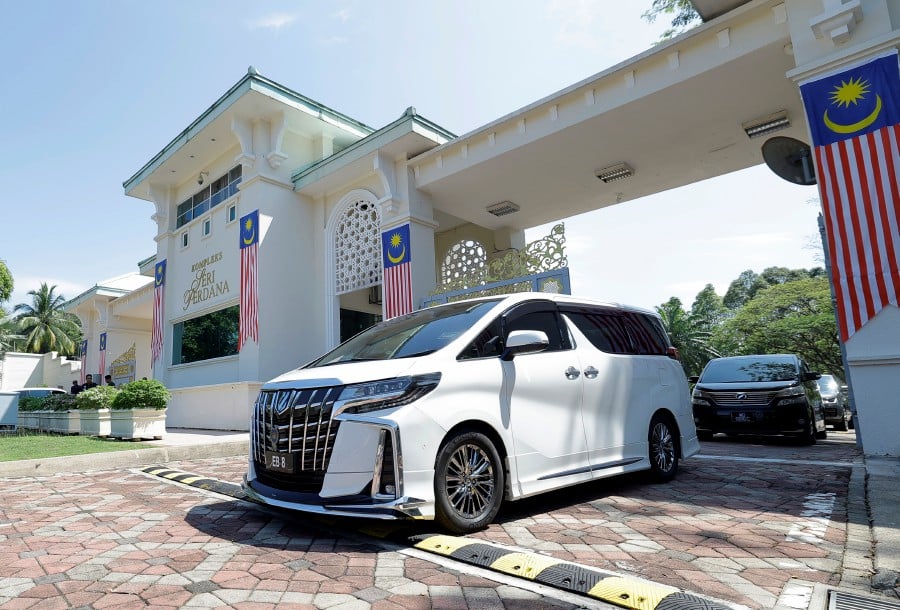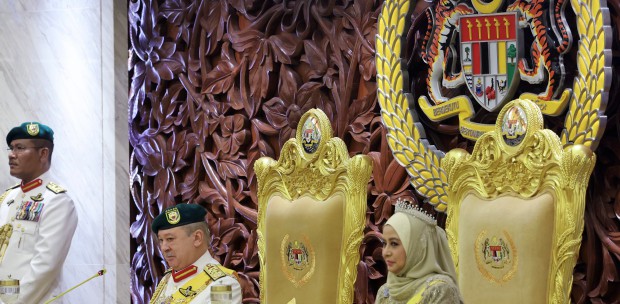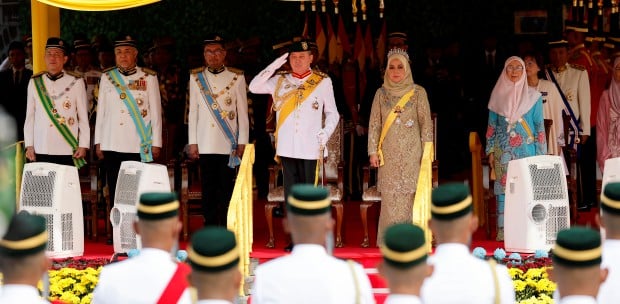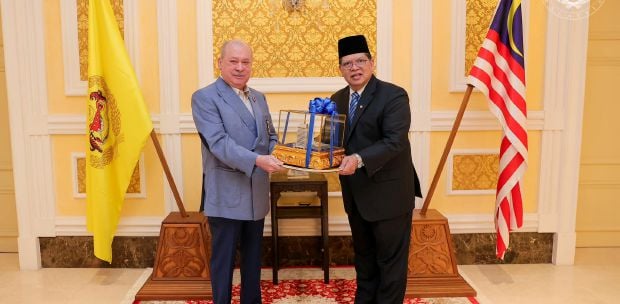KUALA LUMPUR: Matters relating to the economy, particularly the falling ringgit and rising cost of living, are expected to take centre stage when the third session of the 15th Parliament begins today.
Over the next 19 days, members of parliament are also expected to debate communication issues surrounding government agencies, including the mix-up over the announcement of the proposed single-grade white rice and the demotion of Tourism Promotion Board director-general Datuk Dr Ammar Abd Ghapar.
Before that, however, all eyes will be on the royal address by His Majesty Sultan Ibrahim, King of Malaysia, who will officiate the opening of the new parliamentary session.
The newly installed 17th Yang di-Pertuan Agong, known for his no-nonsense approach, is understood to have drafted his own speech in a departure from tradition.
Regent of Johor Tunku Ismail Sultan Ibrahim previously hinted that the public could anticipate a "different style" of ruling from Sultan Ibrahim.
He also predicted that the government would face a more "difficult" time, as Sultan Ibrahim was more of a hands-on ruler when it came to the people's interests.
Sultan Ibrahim's address is expected to shape the course of the six-day parliamentary debate on the royal address.
Prime Minister Datuk Seri Anwar Ibrahim, during a Dewan Rakyat pre-session briefing with ministers, deputy ministers and government MPs at Seri Perdana yesterday, reminded the MPs to have good attendance, maintain their decorum and ensure that their debates were of substance and quality.
This session is also expected to see legislative amendments tabled, including on citizenship law, which would automatically grant Malaysian mothers the right of passing their citizenship to their overseas-born children, a privilege enjoyed only by Malay-sian fathers.
Home Minister Datuk Seri Saifuddin Nasution Ismail previously said the proposed amendments on the granting of citizenship would be presented to the cabinet next month.
If approved, it would be taken to the Dewan Rakyat.
Among the more contentious proposed amendments include removing abandoned children's or orphans' right to citizenship.
This would involve a constitutional amendment directed towards altering the Second Schedule, Part II, Section 1(e), which grants citizenship to every stateless person born in Malaysia by operation of law.
The government is also expected to table the Parliamentary Services Act (PSA), which grants Parliament the autonomy to manage its affairs, including expenditure and staff selection.
The act, which aims to create a dedicated civil service for Parliament, could also ensure greater separation of powers between the executive and legislative branches.
The PSA was first enacted in 1963, but repealed in 1992.
Calls to revive the law have been mounting and received the backing of former Senate president Tan Sri Dr Rais Yatim.
Another legislation that could be tabled is the Syariah Court (Criminal Jurisdiction) Act 1965, also known as Bill 355.
First tabled by Pas president Tan Sri Abdul Hadi Awang as a Private Member's Bill in 2016, the legislation aims to strengthen Syariah courts and increase punishments stipulated in current laws against Muslims.
The amendments had been approved by the Attorney-General's Chambers in October 2022 and were slated to be tabled in Parliament in the same year.
The tabling, however, was stalled due to the dissolution of Parliament to make way for the 15th General Election.
Minister in the Prime Minister's Department (Religious Affairs) Datuk Dr Mohd Na'im Mokhtar said engagement sessions on the bill were in their final stage and would seek cabinet approval
before being tabled in Parliament.






